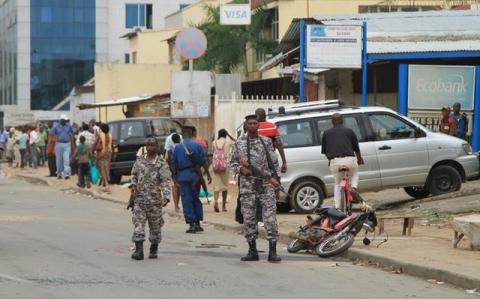Advertisement
U.N. investigators say Burundian forces still torturing, killing opponents
GENEVA (Reuters) - Burundian security forces and allied militia are still abducting, torturing and killing people with almost total impunity, U.N. investigators said on Thursday, an accusation fiercely denied by Burundi.
Burundi, a member of the United Nations Human Rights Council, has failed to reply to their letters to the foreign minister and they therefore have no access to the central African country where abuses are "rarely prosecuted", they said.
Burundi's U.N. ambassador Rénovat Tabu said the allegations were "partial and tendentious" and that investigators were ignoring the government's efforts to restore peace and security.
Burundi was plunged into chaos in April 2015 when President Pierre Nkurunziza said he planned to run for a third term, which the opposition said was unconstitutional and violated the peace deal that ended its civil war in 2005. Nkurunziza was re-elected, but some of his opponents took up arms against him.
More than 700 people have been killed since then, while an estimated 400,000 people have fled to neighbouring countries, the state-run National Commission for Human Rights says.
The U.N. commission of inquiry, set up by the Council last September, has collected 470 testimonies on violations committed since 2015 that reflect "deep and widespread fear" among exiles, its chairman Fatsah Ouguergouz said.
"We were struck by the particularly cruel and brutal nature of the violations described to us," he told the Geneva forum.
"Several victims, usually young members of opposition parties ... or people accused of supporting or belonging to armed groups or having firearms, described to us the systematic torture and particularly cruel and inhuman treatment by members of the National Intelligence Service and the police, sometimes assisted by Imbonerakure," he said, referring to the government-allied youth militia.
Burundians had testified "alleging the use, during torture sessions, of clubs, rifle butts, bayonets, iron bars, metal chains and electric cables with the result that some victims' bones were broken and other victims lost consciousness; long needles stuck into victims' bodies or unidentified products injected into them; nails ripped out with pliers; burns; and many abuses inflicted on male detainees' genital organs."
Abuses have been committed "in a more clandestine but equally brutal manner" since late 2016, Ouguergouz said.
Following disappearances, bodies are found in rivers, "the victims have their arms tied behind their backs and sometimes their bodies are weighed down with stones to make them sink".
John Fisher of the New York-based Human Rights Watch said that Burundi "stands in contempt" of the Council.
"The national justice system is heavily influenced by the ruling party and has been unable to deliver credible justice for these crimes," he told the forum.
"This impunity sends a clear message to the Imbonerakure. They know they can kill, rape and intimidate citizens and get away with it."
(Additional reporting by Clement Manirabarusha in Bujumbura; Editing by Louise Ireland)



















Add new comment